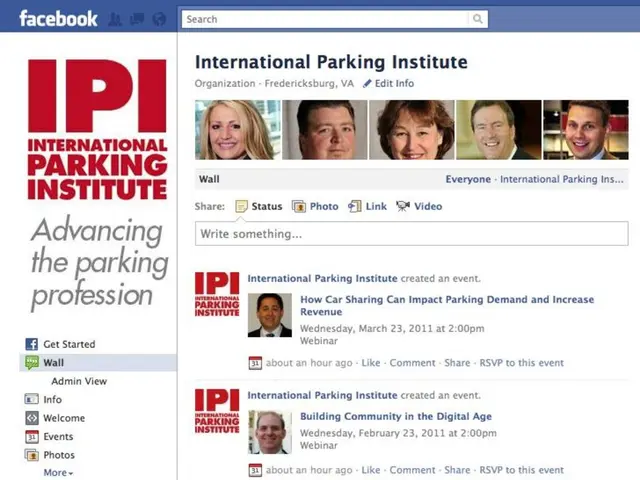Chilling in China: Apple's AI Dream on Hold
Delay in AI deployment by Apple and Alibaba in China due to Donald Trump's trade dispute escalation
Catching Up on the Latest: Apple's partnership with Alibaba to launch Apple Intelligence, their AI suite for Chinese users, is hit by delays due to China's internet authority - the Cyberspace Administration of China (CAC). The hang-up? Trump's trade war and rising geopolitical tensions between the U.S. and China [1][2][3].
The Why Behind the Wait: Why's Apple sweating? The main culprit is the trade friction between the U.S. and China, intensified by President Trump's tariffs [2][4]. This has resulted in a review slowdown for U.S. tech companies like Apple, part of wider diplomatic maneuvers [1][3].
The Trump Effect: Apple's suffered under Trump's pressure to shift production from China. Last month, Trump threatened Apple and Samsung with tariffs unless they moved manufacturing back to the U.S. [1]. Apple's stock has taken a hit due to these strategic moves and slow AI feature rollout [3].
Rising Competition: Meanwhile, Chinese rivals such as Huawei, Xiaomi, Oppo, and Vivo are making a play, eating into Apple's market share in the process [3]. With their AI services in limbo, Apple's stuck struggling to stay competitive.
Tariffs and Tit-for-Tats: The U.S. and China are in talks to reduce the escalating tariffs [1]. Until then, the wait for Apple and Alibaba's sweet AI partnership continues. The CAC approval process, typically involving tests of AI models, is mandatory for companies offering AI services to the public in China [1]. So far, CAC has approved over 300 domestic AI models [1].
Lead is Liquid: Despite partnering with Alibaba, the high-profile relationship has attracted regulatory scrutiny amid escalating trade tensions between the U.S. and China [1]. To make matters worse, Beijing's reviving investigations into US tech giants [1].
Hurry Up and Wait: The application for the partnership is moving through the pipeline, but it's a sluggish process. First, it needs clearance from the higher body of the State Council [1]. However, approvals can get expedited once the State Council gives the green light.
Friendly Fire: The U.S. commerce department's Bureau of Industry and Security has expressed concerns to Apple and Alibaba about the partnership, albeit without legal ability to block it [1].
A Foot in the Door: In February, Alibaba chair Joe Tsai confirmed the partnership, fueling speculation that Alibaba would provide tech for Apple's AI-enabled iPhones in China [1].
Fall from Grace: Apple's market share has been slipping in China. At the start of this year, Apple held a 70% share of the premium smartphone market, while Huawei accounted for 13% [1]. By Q1, Apple's share dropped to 47%, while Huawei's surged to 35% [1]. Apple declined to comment, while Alibaba, CAC, and the Chinese State Council didn't respond to requests for comment.
- The delay in Apple's launch of Apple Intelligence, their AI suite for Chinese users, might impact their business, considering the current financial implications of Trump's trade war and rising general-news issues between the U.S. and China.
- Amid growing competition from Chinese tech companies using artificial-intelligence, such as Huawei, Xiaomi, Oppo, and Vivo, Apple may face challenges in maintaining their position in the business market due to the hold-up in their AI feature rollout.
- The partnership between Apple and Alibaba in offering AI services to the public in China faces scrutiny due to political factors and potential future regulations on technology companies within both the U.S. and China.







